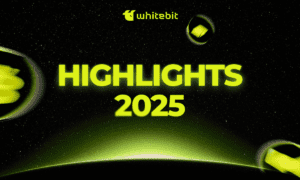The digital revolution has significantly impacted the financial industry, introducing new technologies that streamline operations and enhance security. One of the most transformative innovations is smart contract platforms, which play a crucial role in automating processes and improving transparency. As decentralized finance (DeFi) and blockchain technology continue to transform, smart contracts have become vital for enabling automated, trustless transactions that reshape traditional financial services.
Understanding Smart Contracts
Smart contracts are self-executing digital agreements with predefined conditions written into code. When these conditions are met, the contract automatically enforces the agreed-upon actions without needing intermediaries. Initially proposed by cryptographer Nick Szabo in the 1990s, smart contracts have become a reality with the advent of blockchain technology. They offer an automated, secure, and transparent way to conduct transactions, eliminating the need for manual oversight.
Unlike traditional contracts, which require legal interpretation and enforcement, smart contracts are executed by code. This automation reduces the risk of human error, fraud, and disputes. In finance, smart contracts have diverse applications, from simple payment automation to complex financial products like derivatives and insurance.
The Role of Smart Contract Platforms in Finance
Smart contract platforms serve as the foundation for creating, deploying, and executing smart contracts. These platforms use blockchain technology to ensure that contracts are immutable and transparent. Financial transactions, previously burdened by slow processing and high costs, benefit significantly from the automation provided by smart contracts.
Smart contract platforms address several critical aspects of financial services:
Automation of Financial Transactions
Automation is a significant benefit of smart contract platforms. Financial services such as payments, lending, and asset transfers can be streamlined using smart contracts, reducing the time and resources required. For instance, a smart contract for a loan can automatically release funds once the borrower’s credit score meets specific criteria, bypassing the need for a manual review process.
Enhancing Transparency and Trust
Transparency is another key advantage of using smart contracts. Traditional financial systems often lack transparency, which can lead to disputes and mistrust. Smart contract platforms record every transaction on a public ledger, making it verifiable and traceable. This transparency builds trust among participants, as all parties can view the contract’s terms and execution history.
Reducing Costs and Increasing Efficiency
By eliminating intermediaries, smart contract platforms help cut down costs associated with traditional financial transactions. Banks, brokers, and legal professionals typically charge fees for their services. However, with smart contracts, these middlemen are no longer needed, resulting in lower transaction fees. Moreover, the automation provided by smart contracts significantly speeds up processes, enhancing efficiency across the financial sector.
Key Features of Smart Contract Platforms
Not all smart contract platforms are created equal. The leading platforms offer distinct features tailored to different use cases and industries. Key features to consider include scalability, security, interoperability, and developer support.
Scalability
Scalability is crucial for smart contract platforms to handle a large number of transactions without compromising performance. Financial applications often require high throughput to process payments and trades swiftly. Some platforms address scalability issues by implementing layer-2 solutions or sharding, enabling faster transaction processing.
Security
Security is a top priority for any financial technology. Smart contracts, once deployed, cannot be altered, making them secure but also vulnerable to bugs or errors in the code. Leading platforms conduct rigorous testing and offer developer tools to minimize these risks. Additionally, features like formal verification help ensure that the contract behaves as intended.
Interoperability
Interoperability refers to the ability of smart contract platforms to interact with different blockchains and traditional systems. In finance, seamless integration with existing infrastructure is vital for adoption. Platforms that support interoperability can facilitate cross-chain transactions, enabling a broader range of financial applications.
Developer Support and Ecosystem
A robust developer community and ecosystem are essential for the success of any smart contract platform. Platforms that offer comprehensive developer tools, documentation, and support attract more projects and innovations. A strong ecosystem provides financial institutions with a wide array of solutions, driving further adoption.
Leading Smart Contract Platforms Transforming Finance
Several smart contract platforms have emerged as leaders in the financial industry, each with unique features that cater to different needs.
Ethereum
Ethereum is the pioneer of smart contract platforms and remains the most widely used. It offers a flexible and robust environment for developers to create decentralized applications (dApps). Ethereum’s smart contracts are written in Solidity, a programming language specifically designed for this purpose. Its large developer community and vast ecosystem make it the go-to platform for many DeFi projects.
Despite its popularity, Ethereum faces scalability challenges due to high gas fees and slower transaction times. However, ongoing upgrades like Ethereum 2.0 aim to address these issues by transitioning to a proof-of-stake (PoS) consensus mechanism, which is expected to enhance scalability and reduce energy consumption.
Binance Smart Chain (BSC)
Binance Smart Chain is another popular platform that offers lower fees and faster transactions than Ethereum. BSC is compatible with the Ethereum Virtual Machine (EVM), allowing developers to easily port their dApps from Ethereum. Its high performance and low costs make it attractive for financial applications that require frequent transactions, such as decentralized exchanges (DEXs) and payment solutions.
BSC’s quick growth has led to increased adoption in the DeFi space, but it has also faced criticism for being more centralized than other platforms, as it relies on a limited number of validators.
Cardano
Cardano is a third-generation blockchain platform that focuses on security and scalability. Its unique approach involves peer-reviewed research and a layered architecture, making it one of the most secure smart contract platforms. Cardano uses the Haskell programming language, known for its strong emphasis on reliability and formal verification, which reduces the risk of smart contract bugs.
Cardano’s consensus mechanism, Ouroboros, is a PoS protocol designed to be energy-efficient and scalable, making it well-suited for financial applications that demand high performance.
Polkadot
Polkadot aims to enable interoperability between different blockchains, making it a strong contender in the financial sector. Its unique architecture uses parachains, which are independent chains that can interact with the Polkadot main chain. This design allows for greater scalability and flexibility, enabling complex financial applications across multiple blockchains.
Polkadot’s interoperability feature is particularly beneficial for DeFi projects that require seamless communication between various platforms, enhancing the overall ecosystem.
Challenges in Adopting Smart Contract Platforms in Finance
While smart contract platforms offer numerous advantages, they also face challenges that can hinder widespread adoption in the financial industry.
Regulatory Concerns
The decentralized nature of smart contracts poses regulatory challenges. Traditional financial systems operate within well-established legal frameworks, while smart contracts often lack clear regulations. Financial institutions may hesitate to adopt smart contracts until regulatory bodies provide guidance and standards.
Security Risks
Although smart contracts are designed to be secure, they are not immune to vulnerabilities. Coding errors or flaws in the contract logic can lead to significant financial losses. High-profile incidents, such as the DAO hack on Ethereum, highlight the importance of rigorous testing and security audits.
Scalability Issues
As the number of users and transactions on smart contract platforms grows, scalability becomes a concern. High traffic can lead to network congestion, slow transaction times, and increased fees. Solutions like layer-2 scaling and sharding are being developed, but achieving efficient scalability remains a challenge.
The Future of Smart Contract Platforms in Finance
The future of smart contract platforms in finance looks promising as more financial institutions recognize the benefits of automation and transparency. Innovations in scalability, security, and interoperability are expected to drive further adoption. As regulatory clarity improves, we can anticipate greater integration of smart contracts into traditional financial systems.
Smart contract platforms are poised to transform the financial landscape by enabling automated, transparent, and efficient transactions. The ongoing evolution of blockchain technology will continue to expand the possibilities for financial innovation, reshaping how businesses and individuals interact with money.
Conclusion
Smart contract platforms have revolutionized the financial industry by automating processes, enhancing transparency, and reducing costs. As more companies and financial institutions embrace this technology, we can expect a shift towards more efficient and decentralized financial services. While challenges remain, ongoing advancements in blockchain technology and regulatory developments will likely pave the way for broader adoption of smart contracts, ultimately enabling a more transparent and automated financial ecosystem.



































